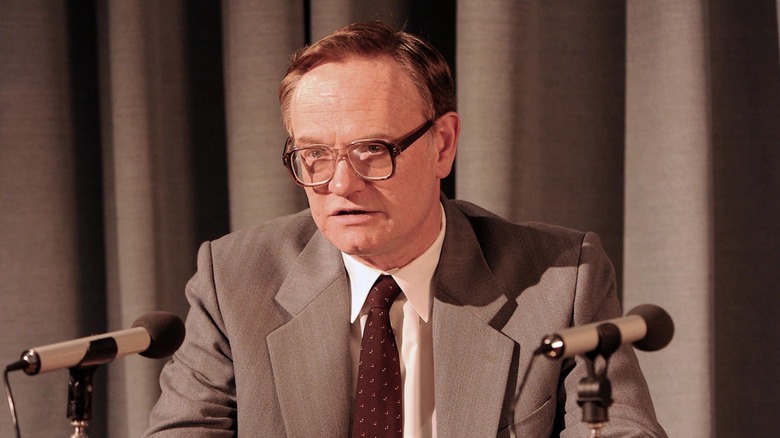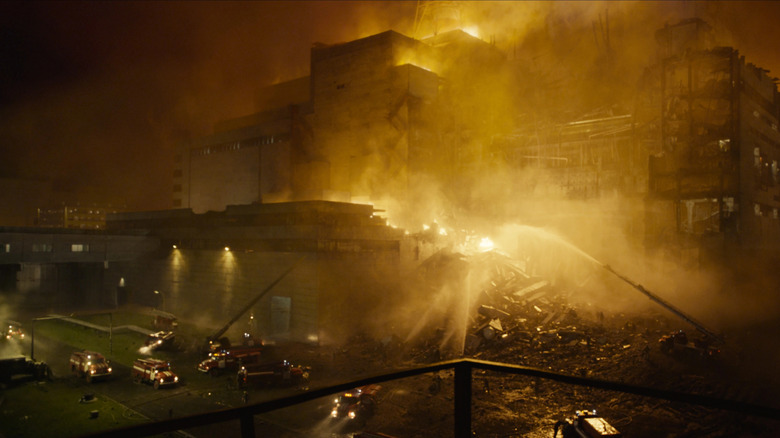Jared Harris' Research For HBO's Chernobyl Was Tossed Out The Window
Whether you keep up with all the latest buzzy shows, never miss a new prestige-y miniseries, regardless of the buzz, or are a devoted /Film reader, you've almost certainly heard the name Craig Mazin. Mazin was most recently, alongside Neil Druckmann, the creative force behind HBO's "The Last of Us," which we called "a thrilling, character-driven achievement." You may be less aware that Mazin was also behind 2019's limited series event, "Chernobyl."
The intense, infuriating, and captivating miniseries captured in excruciating detail every bit of human ignorance, arrogance, laziness, pride, and self-delusion that contributed to the 1986 Ukranian nuclear plant disaster. Though viewership was relatively low, the series was greeted with rapturous acclaim, leading to an awards season sweep where the cast and creative crew picked up a hat trick of trophies at the Emmy's, Grammy's, and Golden Globes, as well as a prestigious Peabody Award.
One aspect of the series that was singled out repeatedly for praise was the caliber of research that went into reconstructing not just the disaster itself, but the period details, cultural specificities, and the political climate of the U.S.S.R. at the time. Mazin and his research team pored extensively over the science behind the meltdown, and star Jared Harris, who played the real Soviet chemist Valery Legasov, did his own research for the role. But in an interview with Deadline, Harris revealed that, however many weeks or even months of research an actor might do for a role, they will come up against the fact that the writer, director, and researchers will invariably have done more. And that's what makes it into the finished product.
'You can't show up and say, 'I have a better idea''
"All the research you do is helpful, even if you don't use it," Harris told Deadline, " but at the end of the day, you have to understand and accept that the writers have done all that research, and they've discovered everything that you've discovered. They've made the decisions about what is useful for their story and what to omit. The story you're telling is the one that's in the script, and you can't show up and say, 'I have a better idea for a different story.'"
Harris' character in "Chernobyl," Valery Legasov, played a pivotal role in both the botched containment of the meltdown and the transparency process that eventually followed. Harris described his impression of Legasov from his research as, "an extremely confident person. He was someone who was comfortable being in charge, and he felt as though he was probably the go-to person in situations such as these. He had a kind of Russian swagger. He projected an alpha quality."
But when it came time to shoot, Harris found that Mazin had other ideas for the character. "[Mazin] said he was looking for contrast for the initial antagonism between Shcherbina [Stellan Skarsgård] and Legasov. Eventually, they come to respect one another and they become deeply bonded friends. But there needed to be a contrast between the two of them to begin with."
Harris didn't let Mazin's redirect throw him. "Still," he found his insight into the character "spoke to one of the themes in Craig's script, which is the fact that the experts — the scientists, the people with specialized knowledge — were sidelined and ignored." Harris' process on "Chernobyl" ultimately amplified one of the show's main themes: you should always trust the experts.

